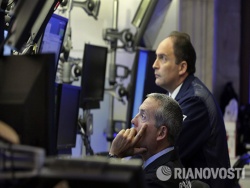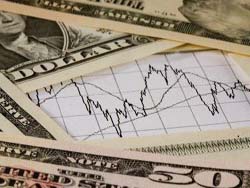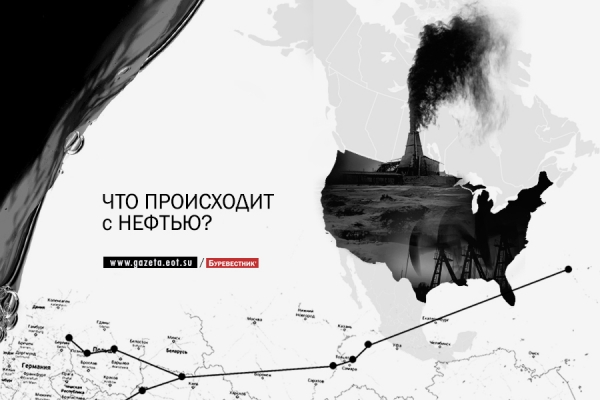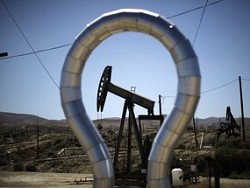
When the end of June, perhaps the world will never be the same. Everything can change for six days. Six decisions that will be taken in six different places of the planet, in Vienna and Washington, London and Madrid, Frankfurt and Karlsruhe. Some events are related to each other, others isolated, but each will have its consequences. For governments, companies and us citizens. Economists and analysts predict four intense weeks in the financial markets, some warn of a stock market crash. 30 the most important days of the year.
Vienna, June 2: a Meeting of OPEC
After meetings in the conference rooms on the street Hellersdorfer in Vienna, much remains secret. The public has no access to the meetings of OPEC. But the results will affect her. June 2, contrary to expectations, the Organization of exporting countries oil cartel, which seeks nothing less than to seize power over the most important raw materials of the planet, to a landmark decision: namely, to freeze production quotas. The price of oil will grow rapidly. Since January, prices have steadily increased, from less than 30 to almost $ 50. If oil States actually limit production, the price can jump to $ 70, analysts said.
This is good news for countries that depend on sales of raw materials, but not for consumers. Gasoline and heating probably will rise significantly. In April, OPEC countries and Russia have already said about the deal. But to no avail, because Saudi Arabia was doing everything contrary. Crown Prince Muhammad bin Salman was not at all interested in conceding market share to main rival to Iran, which was back on the scene after the lifting of sanctions. In Vienna will be the debut of the new oil Minister of Saudi Arabia Khalid al-falih. OPEC may resolve their disputes and with the new Secretary-General will demonstrate new strength.
Vienna, June 2: the ECB meeting
Mercury and Fortuna, the messenger of the Roman gods and the goddess of fate, flaunt above the stone entrance to the Austrian national Bank (ANB) in Vienna. This time the meeting of the Council of the European Central Bank (ECB) will be held here. At first glance, the agenda of the “guardians of the Euro” does not promise anything unusual: do not expect further cash gifts after recent large-scale measures, especially because the program purchases of corporate bonds will begin in June. However, the meeting could trigger instability in the financial markets.
Chief economist of the ECB Peter praet will present new projections of inflation and growth in the Euro area. For the first time in a long time, the inflation forecasts of the ECB are likely to increase substantially. This is evidenced by the significant increase in oil prices and recent data from Germany. If the monetary authorities really upping their forecasts, the markets may see this as the first sign of a possible departure from the ultra-low rate of the ECB and to take a new position. The possible consequences of the available markets showed us in April of last year: then there was a collapse in the bond market.
This can be repeated at any time. ECB keeps interest rates artificially low. Many say the bubble in the bond market that could burst. All, of course, indicates that Mario Draghi and his colleagues in the coming weeks, will need the blessing of mercury and Fortune.
London, June 23: the threat of “breccia”
100 billion pounds, equivalent to more than 130 billion euros. This amount will be at stake for the United Kingdom on 23 June. So it can decrease economic productivity of the country by 2020, if the British decide to withdraw from the EU. This is evidenced by the analysis recently conducted by the auditing firm PwC. About a million jobs will be in danger. In the case of “breccia”, London, European centre of the financial world will suddenly be cut off from free movement of capital — a key element of the EU, which is only available to its members.
But the shock is not confined to the island. He also quickly reach the continent. European banks are also in danger of losing more than 100 billion euros, as is evident from financial data service Bloomberg. The withdrawal of Britain will be an incredible shock, especially for those institutions that bought the British mortgage and loan bonds.
Things can be even worse. In that case, if “brakcet” will be an example for others. The integration of Europe took place for many decades now the country can again move away from each other. What if other States will imitate the British and wants to leave the Union? More than 60 years ago, it was created the European coal and steel community, and for the first time since there was a threat of recourse to the European integration, and perhaps even collapse. The latest polls show that in Britain the number of supporters and opponents of brexia” approximately equal to. 45% want to stay the same — to go out, and the rest undecided. If June 23 is actually the day will be the beginning of a Domino effect, the economic consequences would be catastrophic.
Washington, June 14-15: the U.S. Federal reserve will decide on interest rate
On the world’s leading exchange in new York for two weeks discussing the same topic. Janet Yellen has scheduled a rate hike for the summer, and traders now wonder, will do the head of the Federal reserve system these plans at a meeting on 15 June. If this happens, the consequences will feel the whole world economy. Because the fed Yellen is something like the Central Bank of the planet. There is no other influential Central Bank. Many States and companies outside the United States have borrowed in dollars and hope that money will remain cheap.
In particular, Yellen dependent developing countries. Any change in Washington could trigger a crisis in the developing world, and with it a global earthquake. Once in December last year, the fed for the first time in ten years increased interest rates in the coming weeks stock markets have experienced double-digit losses. Traders estimate the probability of a June rate hike of 34%. However, most punters believe that until solutions “broksita”, the fed is unlikely to take the risk to initiate additional excitement.
Karlsruhe, June 21: the decision of the constitutional court
Many in Europe are very much disturbed when we are talking about Karlsruhe. And it is not only in robed German judges. They have often critically examined European expansionism. For example, during the approval of the aid packages for Greece or taking a famous decision on the Maastricht Treaty.
This time, the second Senate of the court decides whether there was a legitimate promise of ECB President Mario Draghi to do everything possible in terms of monetary policy to save the Euro. Historic words, Draghi has led to the establishment of so-called program of OMT (direct monetary transactions), which in case of doubt, involves unlimited purchases of government bonds of crisis countries. Unlimited acquisition of private debt has more to do with prohibited state funding from the ECB than with monetary policy, the plaintiffs complained. Though controversial, the measure has never been used, but the mere existence of the OMT program seems to be a kind of insurance, which discourages too brash of speculators on bonds of countries in crisis.
The court of justice of the European Union (EUFOR) declared the program lawful, but Karlsruhe has expressed doubts. If judges upheld their decision, they don’t just go against SES. Maybe German judges openly forbid the Bundesbank to join the program OMT. The Bundesbank 25.6% is the largest shareholder of the ECB. Without the main source of funding even the best insurance costs almost nothing. Such a decision may lead to the aggravation of the situation in the Euro area.
June 26: the left-wing populists Spain to the verge of victory
On 26 June in Spain, the citizens will choose a new government. The latest polls show a stalemate between the left and conservatives. The people’s party of Prime Minister Raheja is currently in the lead with a share of almost 30%.
A few weeks ago, his victory was a foregone conclusion — but now the left populist party Рodemos United in the electoral bloc “United left” (greens and Communists) led by Pablo Iglesias. This camp is a huge confidence, at least sufficient, together with the socialists to beat the conservatives. Economists fear the triumph of populists. Given the already difficult economic situation, they believe a more rational Union of two people parties. Turn to the left, as happened with the party “SYRIZA” in Greece, set back fourth-largest economy on the continent on the path of recovery.
This will have disastrous consequences. The unemployment rate reached 20.1%, becoming the highest in the EU. In addition, this year the country will clearly exceed those permissible under the Maastricht criteria budget deficit to three percent. The future government will have to save from 20 to 25 billion euros — otherwise the continent could face a catastrophe, as in the case of Greece, only much worse.








